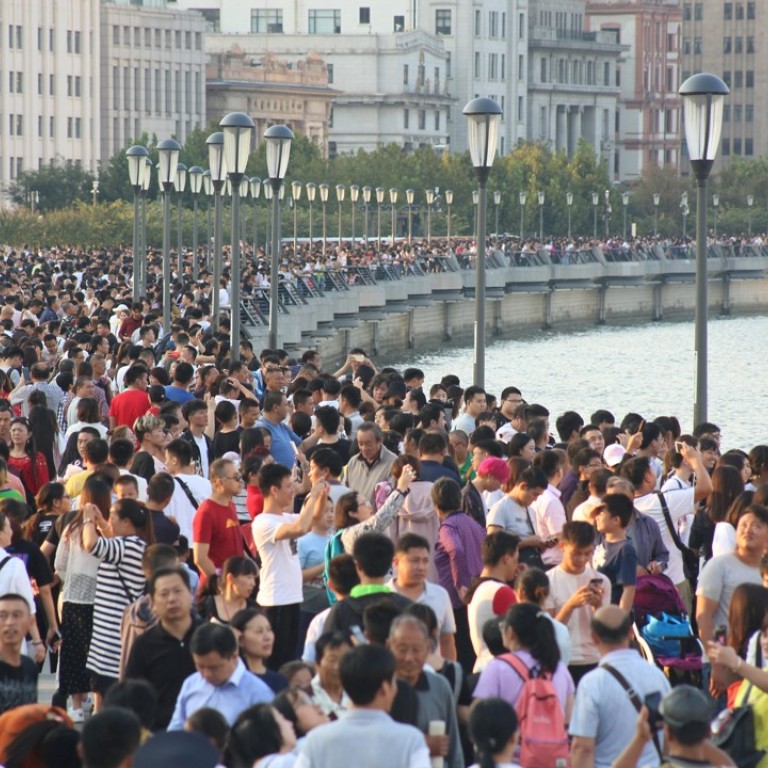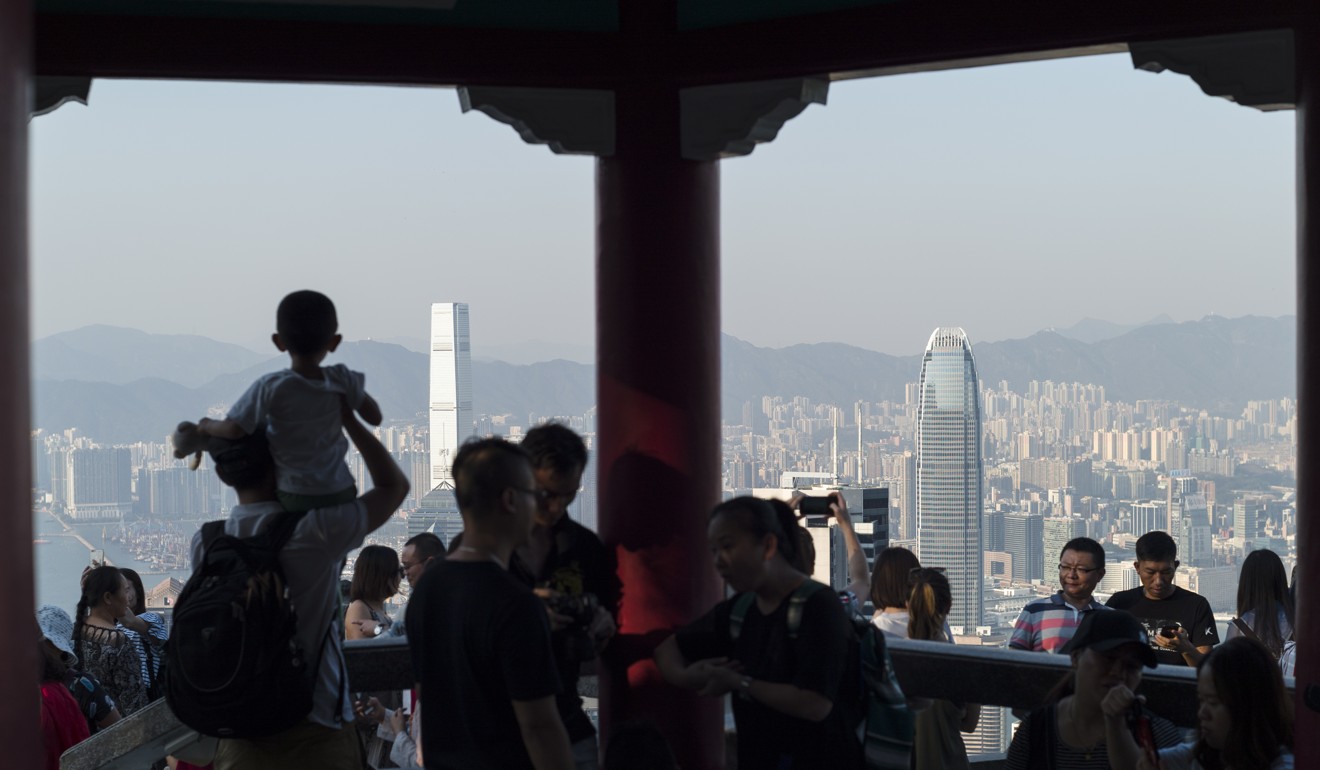
Are Chinese consumers losing power? Soft spending in Golden Week raises concerns
Slow spending takes the shine off Golden Week as consumers refuse to take the economic strain of US-China trade war
Slow spending during China’s biggest holiday week of the year has raised fresh concerns that Beijing may find it hard to rely on its 1.4 billion consumers to bolster growth amid an intensifying trade war with the US.
Consumer spending during this year’s week-long National Day break grew at the slowest pace since the Golden Week holiday system began in 2000.
Sales at the country’s retailers and restaurants over the seven-day holiday, which begins on October 1, amounted to 1.4 trillion yuan (US$200 billion), according to China’s Ministry of Commerce. Total sales in last year’s super Golden Week, which had eight days, were 1.5 trillion yuan.
On a daily basis, that means retail sales over the whole National Day holiday rose only 6.7 per cent compared to a year earlier, although the commerce ministry reported growth of 9.5 per cent – either way, it was the first single-digit growth on record.

It was a similar story from the China Tourism Academy, an institute under the Ministry of Culture and Tourism, which reported an increase on last year of 9.4 per cent in the number of domestic travellers to 726 million – the lowest level of growth since 2007.
In another sign of weak consumer spending, China’s cinema box office revenues over the holiday plunged 21.4 per cent on the same seven-day period last year to 2 billion yuan (US$289 million), according to data compiled by Maoyan Weiying, China’s largest online movie ticketing service platform.
The evidence suggests that consumer spending – a key economic engine that it was hoped would put China’s growth back on track – is losing steam just as China’s export sector is facing the headwinds of trade tensions and a slowdown in its fixed-asset investment in housing and infrastructure under a mountain a debt.
Trade war escalation will hit China harder than the US, IMF says
Jiang Ya, an analyst for Citic Securities, wrote in a recent research note that the soft Golden Week spending was a sign of broader economic weakness with both investor and consumer confidence dampened by a gloomy outlook for the Chinese economy.
China’s retail sales growth has been slowing to 15-year lows in the past couple of months, according to data from the National Bureau of Statistics. Headline GDP has slowed to 6.7 per cent in the second quarter, and the International Monetary Fund said on Tuesday that China’s GDP growth would slow to 6.2 per cent in 2019 as its trade war with the US rages on.
At the same time, domestic consumer spending during the first week of October has been slowing since 2011, according to China’s commerce ministry. The growth in the number of domestic travellers in Golden Week has also stalled at about 10 per cent for the past five years, China Tourism Academy data showed.
Why China cannot rely on consumers to spend their way out of the trade war
Wang Liting and Li Hongke, analysts with Haitong Securities, warned in a recent note on Golden Week that they were cautious about China’s consumer spending in the second half of the year.
“The momentum of the Chinese consumer sector has been weakened since the beginning of the year, due to the deleveraging campaign, P2P crash, monetised resettlement programmes in shanty towns and so on,” they wrote.
Wan Zhao, an analyst with the China Merchants Bank, also forecast that Chinese consumer spending was unlikely to improve significantly in the fourth quarter, given the weak Golden Week performance.
“Even though Golden Week tourism and overall retail sales are two separate things, they will all be influenced by the growth of household income and consumer willingness (to spend),” he wrote.

